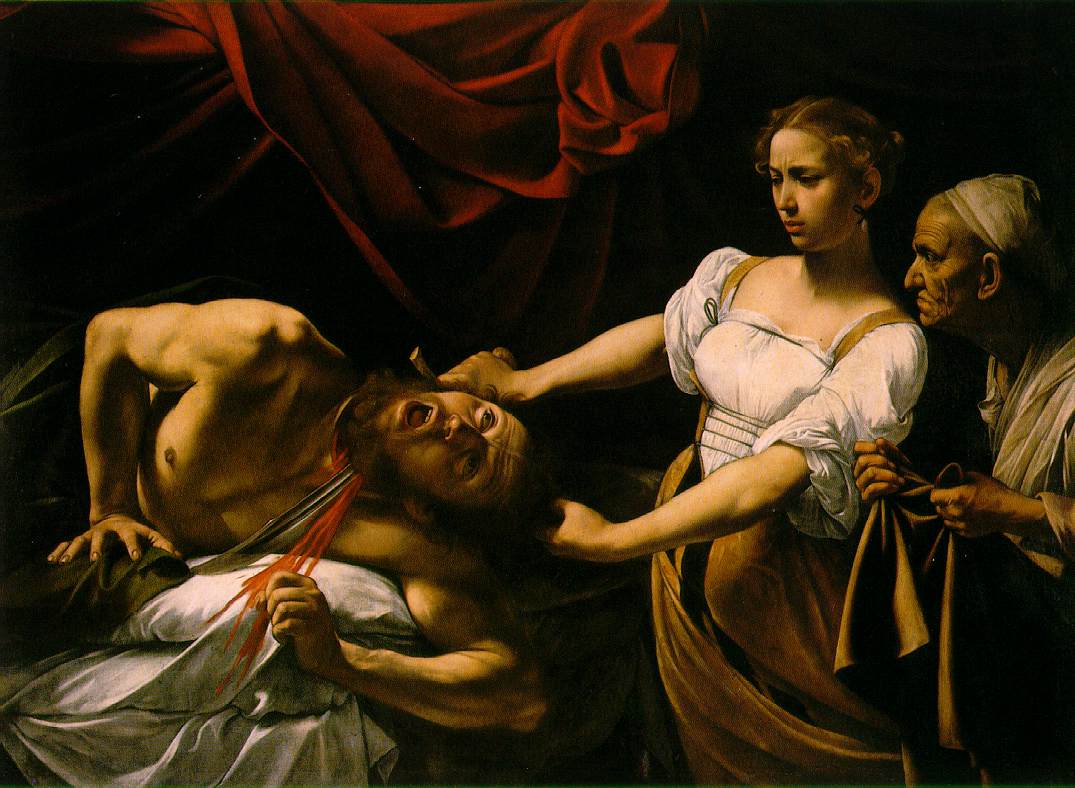As you can tell, Judith is a much different animal than 'Night, Mother.
In case you didn't know, this play is a version of a Bible story, the book of Judith. That book is part of the Christian Apocrypha; that is, it is recognized as scripture by some Christian traditions (such as the Roman Catholic and Eastern Orthodox Churches) and not by others (such as most Protestant denominations). Regardless, the story of Judith has long been part of Judeo-Christian culture. Judith represents something of a trope in Biblical literature: the Israelite heroine who saves her people from certain destruction (see also Esther and Deborah). Various artists have captured key moments of the story, perhaps most famously Caravaggio:
Fun stuff, no?
It's important to note that elements of this trope often involve the heroine tricking, seducing, or otherwise betraying the enemy, making the image of Judith somewhat complicated. She is both national hero and personal betrayer.
Now, you don't really need an in-depth knowledge of the Biblical Judith to get Judith by Howard Barker. As I hope you realize, Barker is using the Biblical story as a jumping-off-point. He's not writing Sunday School dramas for his local church.
Indeed, I want you to notice how Barker's whole style seems interested in something other than a faithful retelling of an old story. Note, for example, how his dialogue shifts from a kind of poetic high speech to Cockney cursing and back again, almost like these are modern-day people playing at classical figures. The significance of this choice I leave to you to determine, but I do want you to be aware of it as a choice on his part. Barker is in fact renowned as a wordsmith. That is, he uses language very precisely, even indicating moments of (what--emphasis? intensity?) by bold printing the dialogue. (His works, by the way, offer great material for actors who want practice in heightened speech.)
With all this in mind, I'm going to pose the same basic question as I did for 'Night, Mother: what's the Major Dramatic Question of this play? As was the case with Norman's play, I would encourage you to look past the obvious question ("Will Judith kill Holofernes?"). A hint: how is Judith different at the start of the play versus the middle of the play versus the end of the play?
I look forward to your thoughts.
Best,
JF

No comments:
Post a Comment